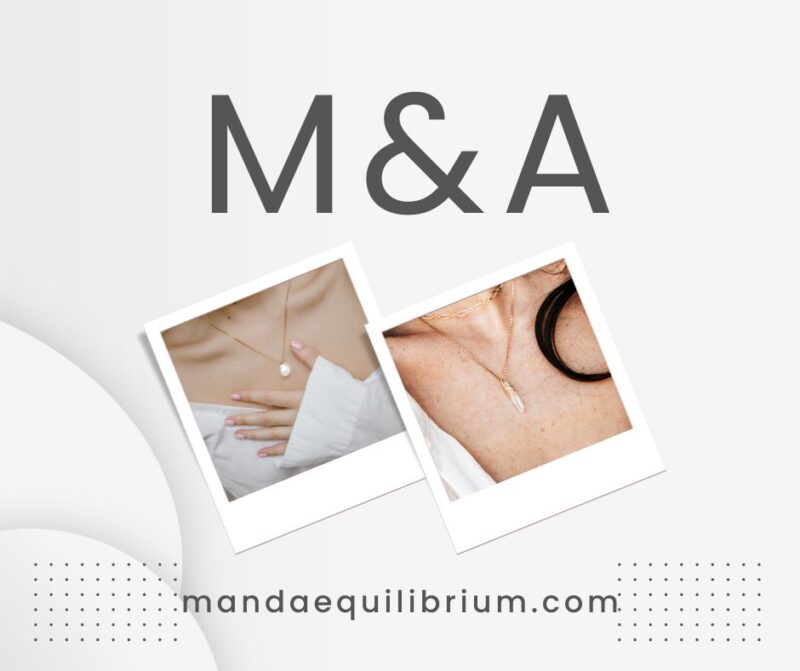The luxury industry is no stranger to mergers and acquisitions (M&A). In recent years, M&A activities in this sector have been on the rise, driven by various factors such as market consolidation, the pursuit of synergies, and the need for diversification. Let’s take a closer look at the current trends and some notable examples of M&A activities in the luxury industry.
Trends in M&A Activities:
- Digital Transformation: With the rise of e-commerce and digitalization, luxury brands are increasingly investing in digital platforms and technologies. This trend has led to M&A activities aimed at acquiring tech-savvy companies specializing in e-commerce, digital marketing, and data analytics.
- Expansion into New Markets: Luxury brands are expanding their global footprint by entering emerging markets. M&A activities play a crucial role in this expansion strategy, enabling brands to gain access to new markets, distribution networks, and local expertise.
- Diversification: Luxury conglomerates are diversifying their portfolios by acquiring brands in different segments of the luxury market. This strategy allows companies to target a broader customer base and mitigate risks associated with market fluctuations.
- Sustainability and Ethical Practices: There is a growing emphasis on sustainability and ethical practices in the luxury industry. M&A activities are increasingly focused on acquiring brands that prioritize sustainability, ethical sourcing, and social responsibility.
If you would like to learn more how M&A deals are done, you can subscribe for an M&A Simulator tool.
Notable Examples of M&A Activities:
LVMH’s Acquisition of Tiffany & Co.:
- Acquirer: LVMH Moët Hennessy Louis Vuitton SE (LVMH)
- Target: Tiffany & Co.
- Deal Value: $15.8 billion
- Date: January 2021
- Details: LVMH’s acquisition of Tiffany & Co. is one of the largest deals in the luxury industry. The acquisition strengthens LVMH’s position in the high-end jewelry market and expands its presence in the United States.
Richemont’s Acquisition of Yoox Net-A-Porter Group (YNAP):
- Acquirer: Compagnie Financière Richemont SA
- Target: Yoox Net-A-Porter Group (YNAP)
- Deal Value: €2.8 billion
- Date: May 2018
- Details: Richemont’s acquisition of YNAP, the world’s leading online luxury retailer, reflects the growing importance of e-commerce in the luxury industry. The deal enhances Richemont’s digital capabilities and online presence.
Capri Holdings’ Acquisition of Versace:
- Acquirer: Capri Holdings Limited
- Target: Versace
- Deal Value: $2.12 billion
- Date: December 2018
- Details: Capri Holdings’ acquisition of Versace expands its portfolio of luxury fashion brands, which also includes Michael Kors and Jimmy Choo. The deal strengthens Capri Holdings’ position in the global luxury market.
Kering’s Acquisition of Ulysse Nardin:
- Acquirer: Kering SA
- Target: Ulysse Nardin
- Deal Value: Undisclosed
- Date: July 2014
- Details: Kering’s acquisition of Ulysse Nardin, a Swiss luxury watch manufacturer, enhances its presence in the high-end watch market. The deal allows Kering to diversify its luxury portfolio and tap into the growing demand for luxury watches.
L’Oréal’s Acquisition of IT Cosmetics:
- Acquirer: L’Oréal SA
- Target: IT Cosmetics
- Deal Value: $1.2 billion
- Date: August 2016
- Details: L’Oréal’s acquisition of IT Cosmetics, a beauty brand specializing in makeup and skincare products, strengthens its position in the fast-growing beauty market. The deal expands L’Oréal’s portfolio and enhances its presence in the United States.
Acne Studios’ Minority Stake Sale to IDG Capital:
- Acquirer: IDG Capital
- Target: Acne Studios
- Deal Value: Undisclosed
- Date: January 2018
- Details: In January 2018, Swedish fashion house Acne Studios sold a minority stake to IDG Capital, a Chinese investment firm. The deal valued Acne Studios at approximately €300 million. IDG Capital’s investment aimed to support Acne Studios’ expansion in the Chinese market and strengthen its global presence. Acne Studios, known for its contemporary and minimalist designs, continues to grow its brand internationally with the support of IDG Capital’s strategic investment.
M&A activities in the luxury industry continue to shape the competitive landscape, driving consolidation, expansion, and diversification. As luxury brands adapt to changing consumer preferences and market dynamics, M&A will remain a key strategy for growth and innovation in the industry.
Here you can check for the latest news about M&A Deals.

